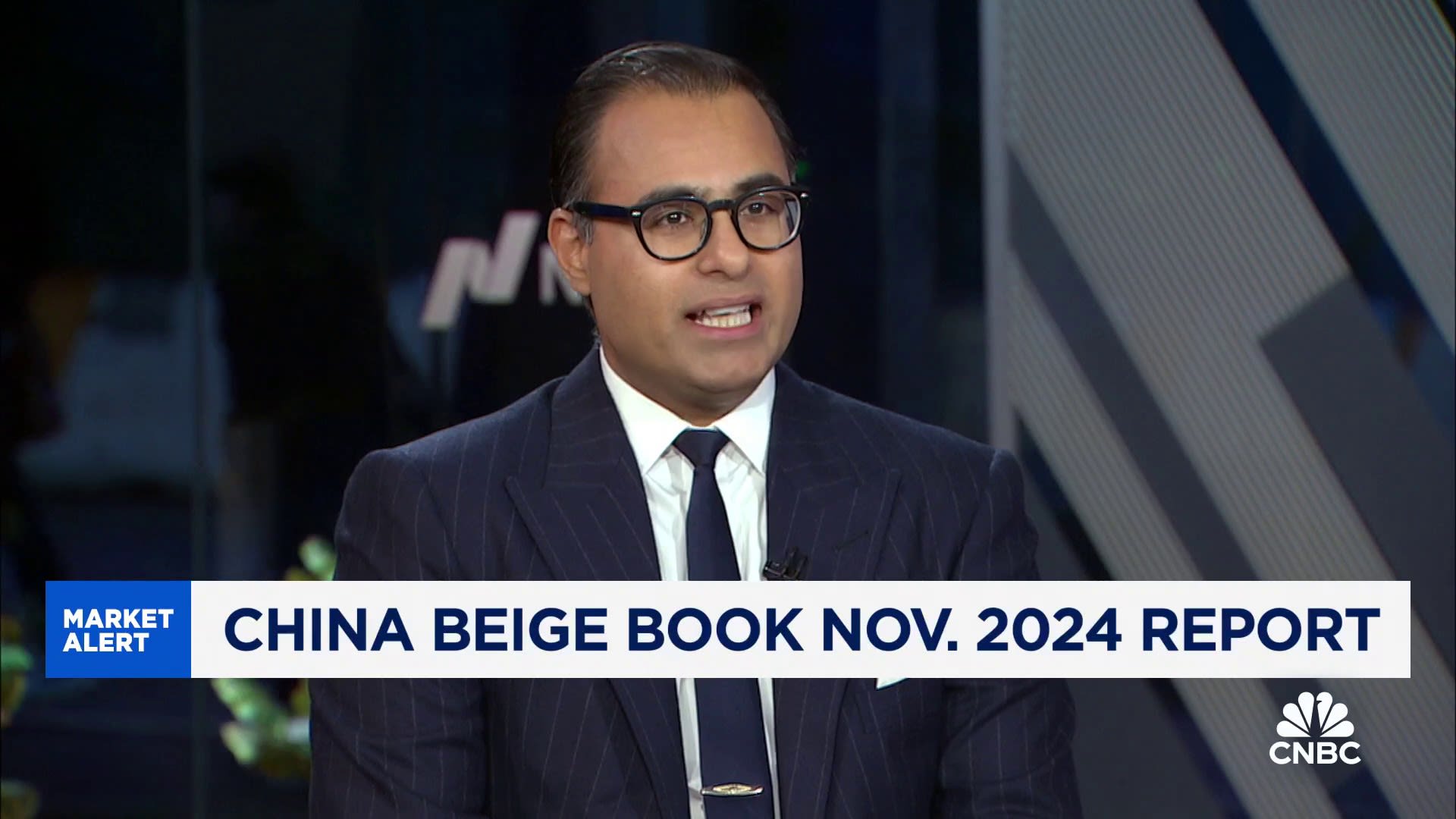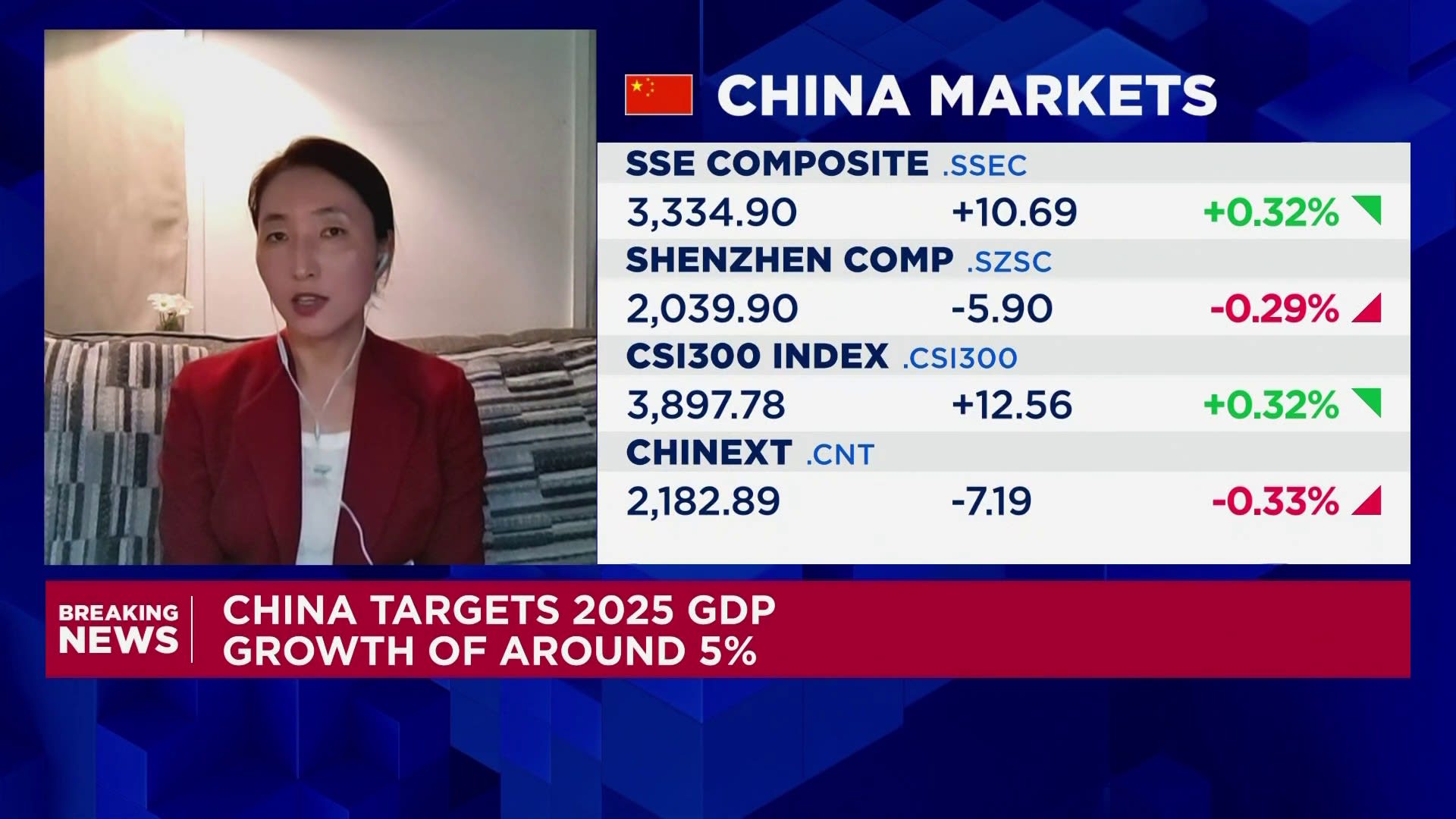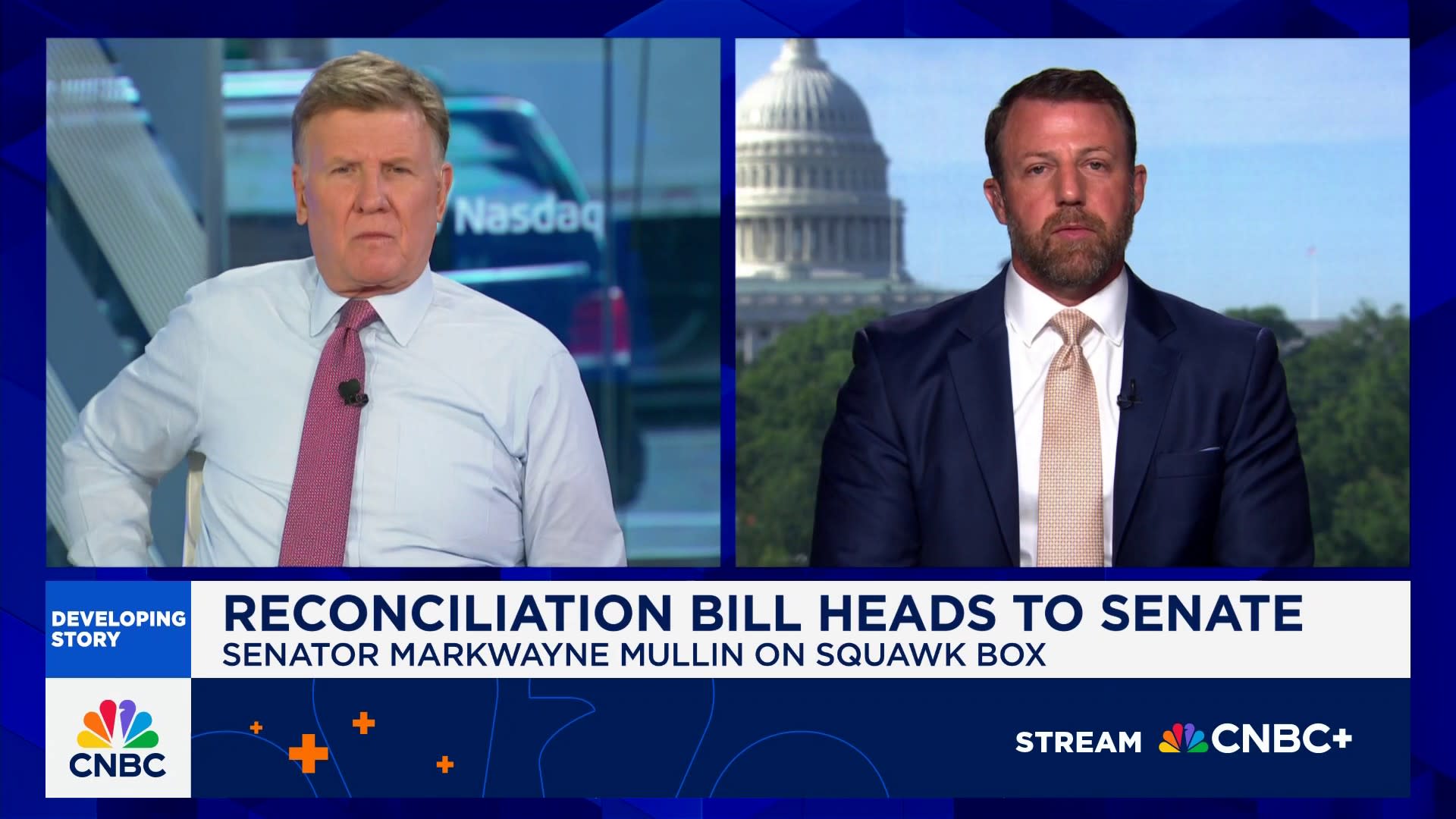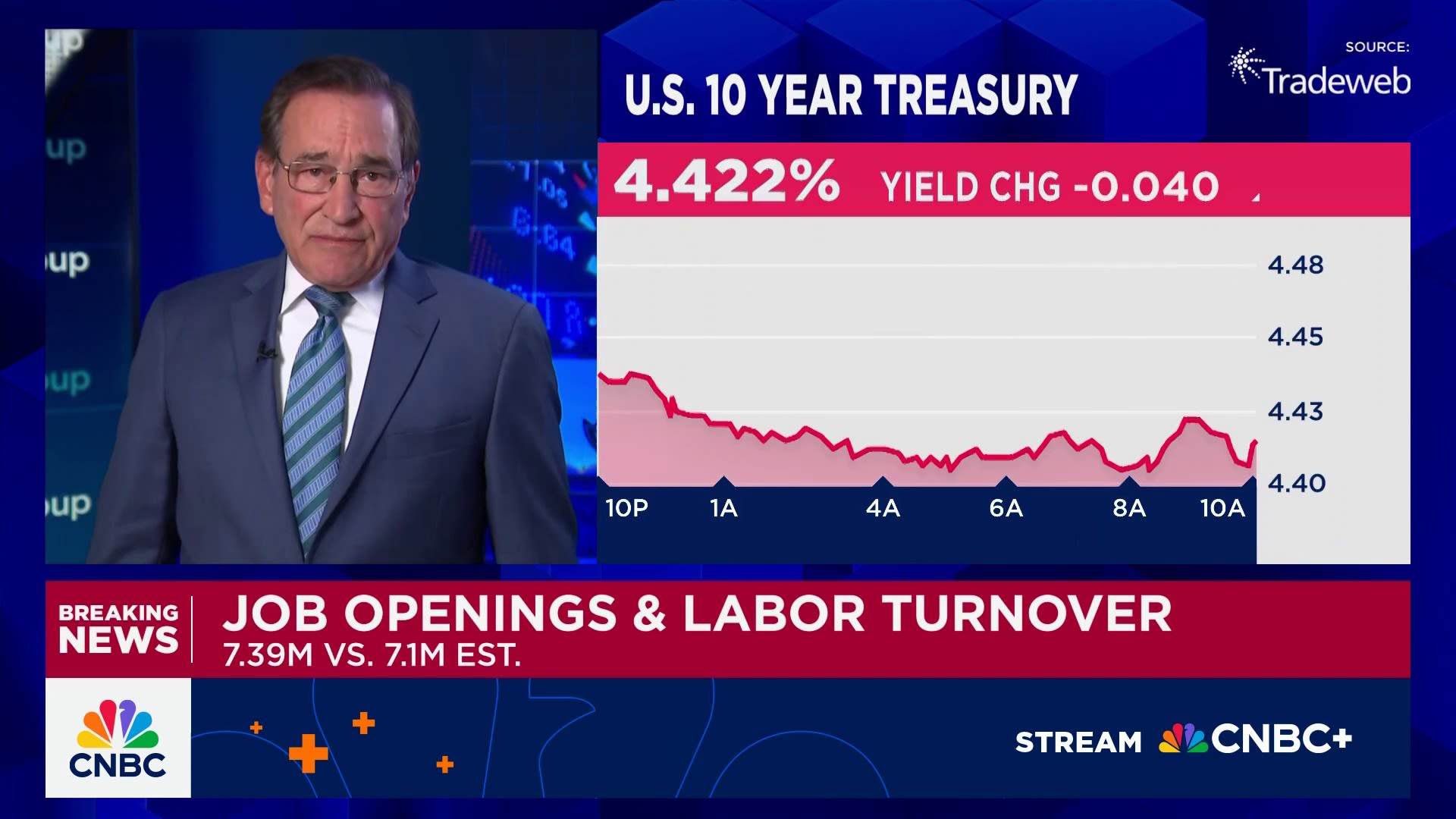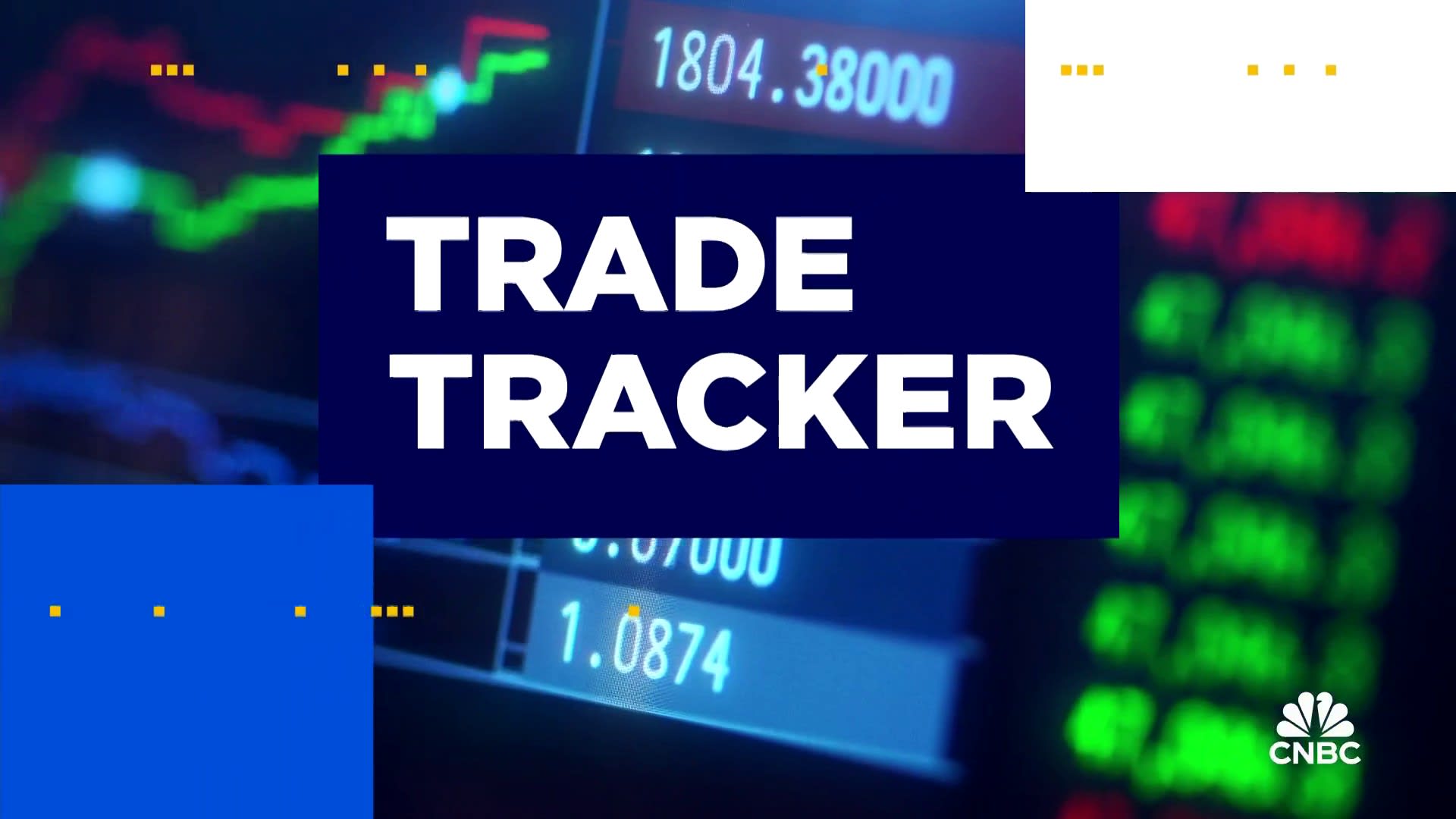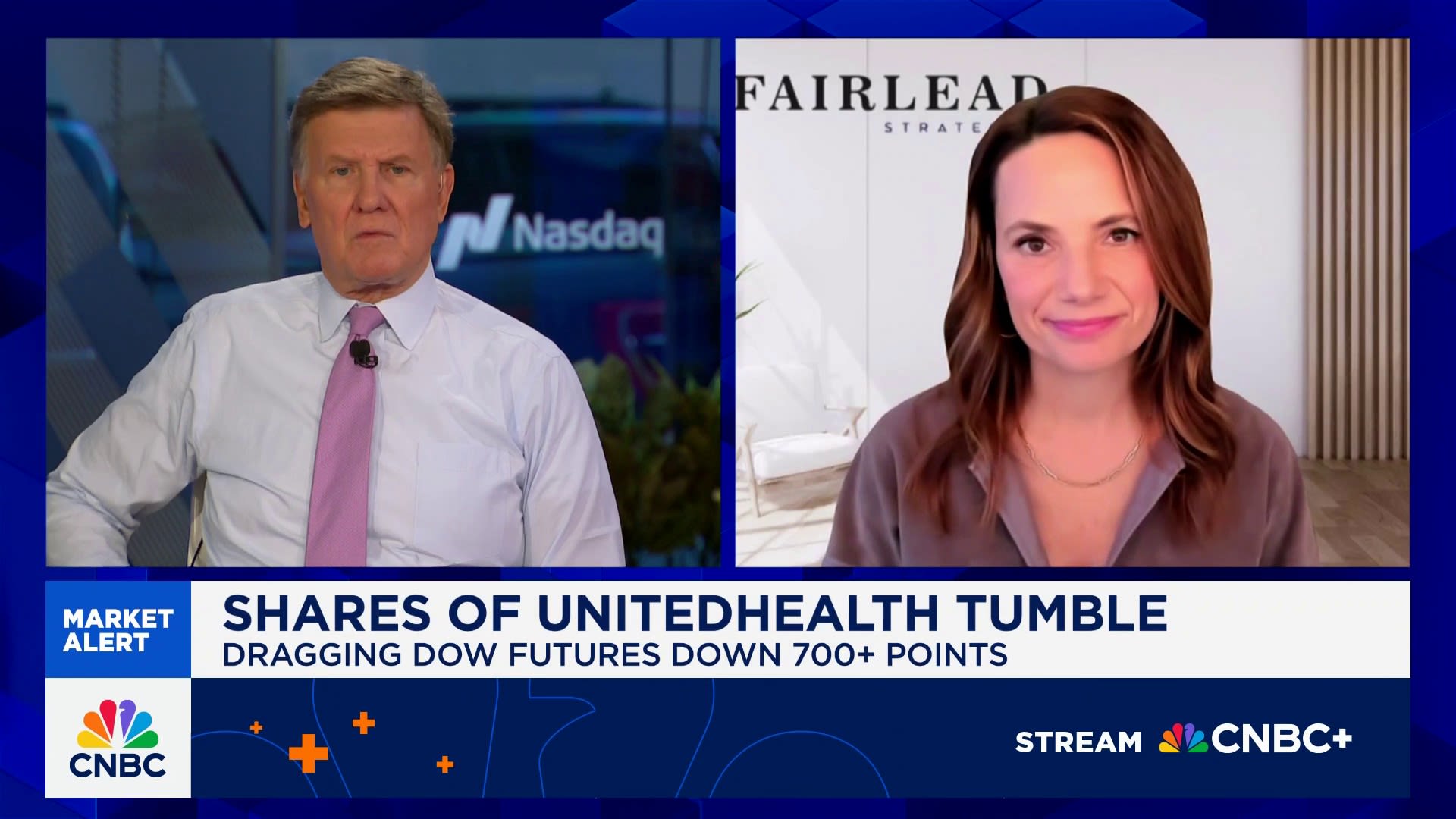
Some investors accustomed to the dominance of U.S. stocks versus the rest of the world are making a stunning pivot
The S&P 500 sank more than 6% since Trump first announced his tariff plan, while the Dow and Nasdaq have each tumbled more than 7%.
There was a strong argument to dial back U.S. stock holdings and adopt a more global portfolio even before the recent volatility, said Christine Benz, director of personal finance and retirement planning for Morningstar.
“But I think the case for international diversification is even greater [now], given recent developments,” she said.
Jacob Manoukian, head of U.S. investment strategy at J.P. Morgan Private Bank, offered a similar assessment. “Global diversification seems like a prudent strategy,” he wrote in a research note on Monday.
U.S. had the world beat by ‘sizable margin’
Some experts, however, don’t think investors should be so quick to dump U.S. stocks and chase returns abroad.
The United States is still “a quality market that looks like a bargain,” said Paul Christopher, head of global investment strategy at the Wells Fargo Investment Institute.
U.S. stocks had been outperforming the world for years heading into 2025.
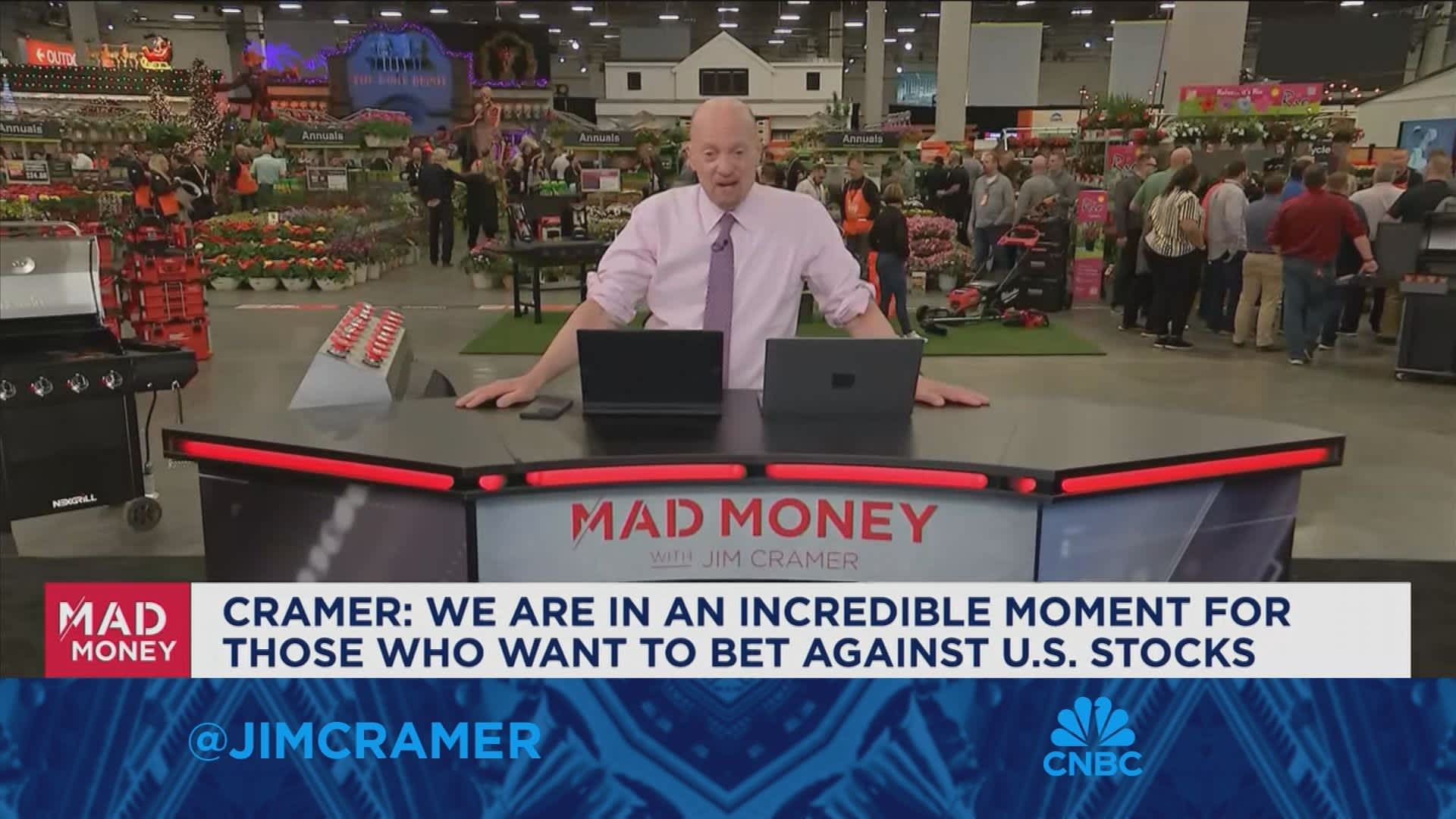
The S&P 500 index had an average annual return of 11.9% from mid-2008 through 2024, beating returns of developed countries by a “sizable margin,” according to analysts at J.P. Morgan Private Bank.
The MSCI EAFE index — which tracks stock returns in developed markets outside of the U.S. and Canada — was up 3.6% per year over the same period, on average, they wrote.
However, the story is different this year, experts say.
“In a surprising twist, the U.S. equity market has just offered investors a timely reminder about why diversification matters,” the analysts at J.P. Morgan Private Bank wrote. “Although U.S. outperformance has been a familiar feature of global equity markets since mid-2008, change is possible.”
More from Personal Finance:
Why retirees shouldn’t fully ditch stocks
Cash may feel safe when stocks slide, but it has risks
How a trade war could impact the price of clothing
The Trump administration’s tariff policy and an escalating trade war with China have raised concerns about the growth of the U.S. economy.
U.S. markets have been under pressure ever since the White House first announced country-specific tariffs on April 2. Trump imposed tariffs on many nations, including a 145% levy on imports from China.
As of Thursday morning, the S&P 500 was down roughly 10% year-to-date, while the Nasdaq Composite has pulled back more than 16% in 2025. The Dow Jones Industrial Average had lost nearly 8%. Alternatively, the EAFE was up about 7%.
Is U.S. exceptionalism dead?
The sharp sell-off in U.S. markets has raised doubts as to whether U.S. assets “are as attractive to foreigners now as they once were and, perhaps as a consequence, whether ‘U.S. [equity] market exceptionalism’ could be on the way out,” market analysts at Capital Economics wrote Thursday.
At the same time, rising global trade tensions have taken a toll on the bond market, threatening to shake the confidence of holders of U.S. debt. The U.S. dollar has also weakened, nearing a one-year low as of Thursday morning.
It’s unusual for U.S. stocks, bonds and the dollar to fall at the same time, analysts said.
Former Treasury Secretary Janet Yellen said Monday that President Donald Trump’s tariffs have made it more difficult for Americans to find comfort in the U.S. financial system.
“This is really creating an environment in which households and businesses feel paralyzed by the uncertainty about what’s going to happen,” Yellen told CNBC during a “Squawk Box” interview. “It makes planning almost impossible.”
The U.S. fire had ‘already been burning’
A trader works on the floor of the New York Stock Exchange at the opening bell in New York City, on April 17, 2025.
Timothy A. Clary | AFP | Getty Images
That said, international and U.S. stock returns tend to ebb and flow in cycles, with each showing multi-year periods of relative strength and weakness.
Since 1975, U.S. stock returns have outperformed those of international stocks for stretches of about eight years, on average, according to an analysis by Hartford Funds through 2024. Then, U.S. stocks cede the mantle to international stocks, it said.
Based on history, non-U.S. equities are overdue to reclaim the top spot: The U.S. is currently 13.8 years into the current cycle of stock outperformance, according to the Hartford Funds analysis.
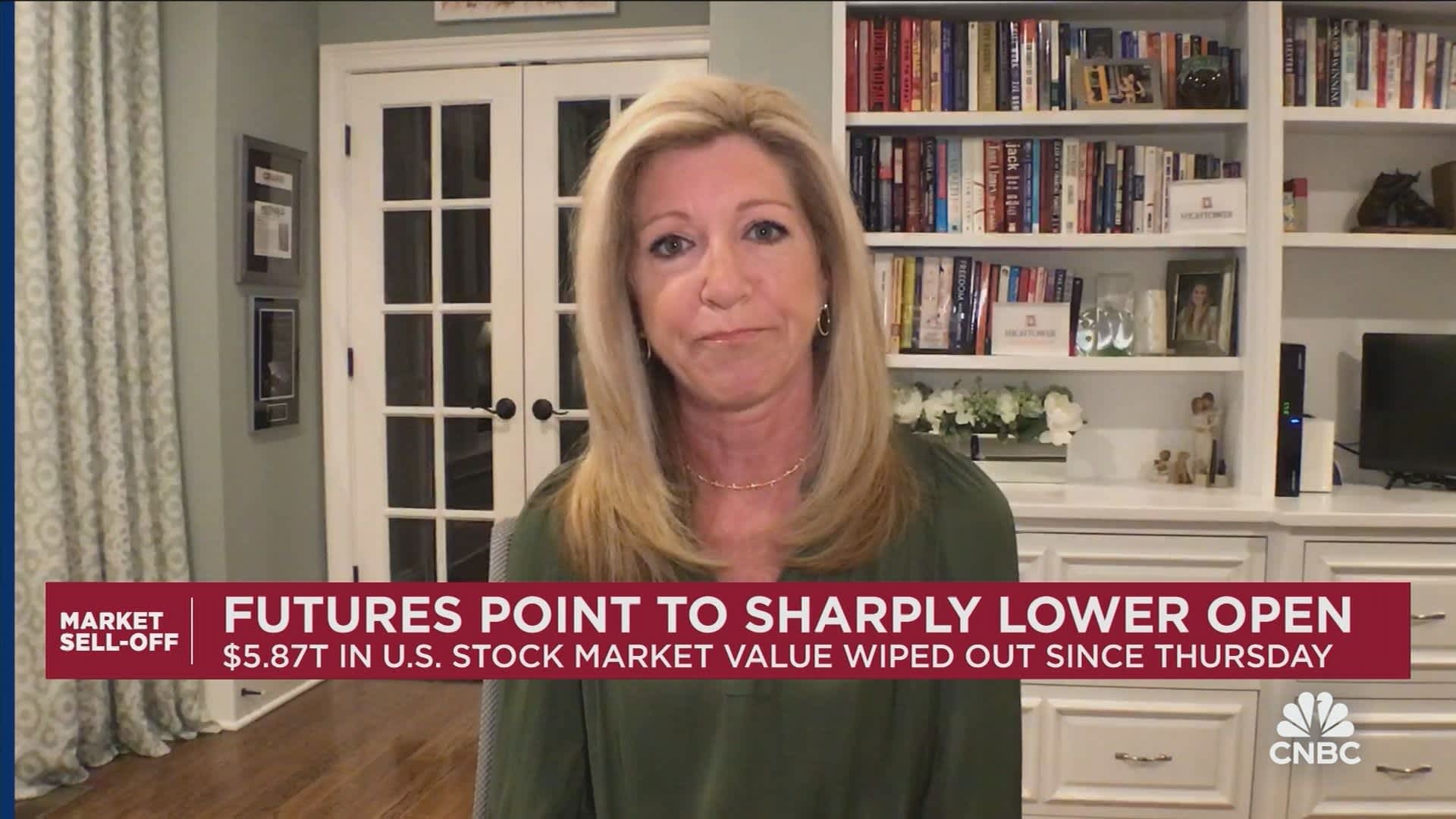
U.S. markets had already showed weakness heading into the year amid concerns about the health of the economy grew and as “air came out the valuations of ‘big-tech’ stocks,” according to Capital Economics analysts.
“In that respect, ‘Liberation Day’ — which accentuated these moves — only added fuel to a fire that had already been burning,” they wrote.
Advisors: ‘Tread carefully here’
A good starting point for investors would be to mirror a global stock fund like the Vanguard Total World Stock Index Fund ETF (VT), said Benz of Morningstar. That fund holds about 63% of assets in U.S. stocks and 37% in non-U.S. stocks.
It may make sense to pare back exposure to international stocks as individual investors approach retirement, she said, to reduce the volatility that comes from fluctuations in foreign exchange rates.
“Part of our core models for clients have always had international exposure, it’s traditionally part of any risk-adjusted portfolio,” said certified financial planner Douglas Boneparth, president of Bone Fide Wealth in New York, of the conversations he is having with his clients.
Financial advisor or business people meeting discussing financial figures. They are discussing finance charts and graphs on a laptop computer. Rear view of sitting in an office and are discussing performance
Courtneyk | E+ | Getty Images
Even though those asset classes didn’t perform as well over the last few years, “they’ve done a pretty good job here of helping reduce the brunt of this tariff volatility,” said Boneparth, a member of the CNBC Financial Advisor Council.
Still, Boneparth cautions investors against making any sudden moves to add non-U.S. equities to their portfolios.
“If you are thinking about making changes now, be careful,” he said. “Do you lock in losses to U.S. stocks to gain international exposure? You want to tread carefully here,” he said. “Are you chasing or timing? You usually don’t want to do those things.”
However, this may be a good time to check your investments to make sure you are still allocated properly and rebalance as needed, he added. “By rebalancing, you can rotate out of less risky assets into equities, strategically buying the dip.”
There have been very few times in history when clients asked about increasing their investments overseas, “which is happening now,” said CFP Barry Glassman, the founder and president of Glassman Wealth Services.
“Given that both stocks and currency are outperforming U.S. indices it’s no wonder there is greater interest in foreign stocks today,” said Glassman, who is also a member of the CNBC Advisor Council.
“Even in the past, when U.S. stocks have fallen, the dollar’s gains helped to offset a portion of the losses. In the past two weeks, that has not been the case,” he said.
Glassman said he maintains a two-thirds to one-third ratio of U.S. stocks to foreign stock funds in the portfolios he manages.
“We are not making any moves now,” he said. “The moves for us were made over time to maintain what we consider the appropriate foreign allocation.”
